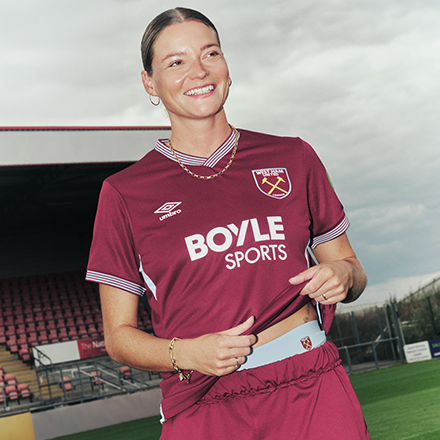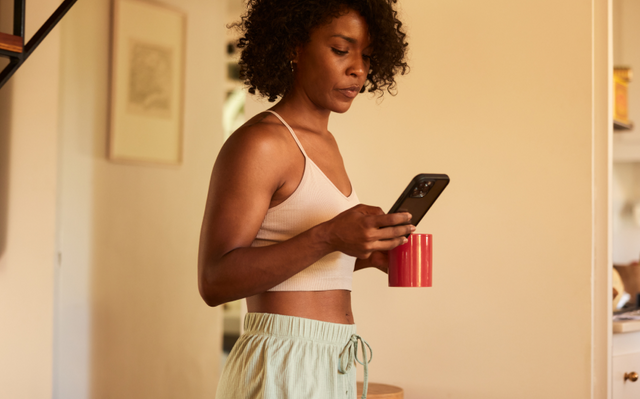Did you know more than 5 million Australians struggle with incontinence, and a huge 80% of those are women – including 1 in 3 who’ve given birth? And while people often joke about a sneaky wee here or there, incontinence has a massive impact on our ability to lead normal, active lives. And that sucks.
So, this World Continence Week, we’re sharing some stats on global incontinence, some tips on preventing and managing it (including with Modibodi of course), and a couple of personal stories from women who’ve been through it…or are still living with it.
Because we’re all in this together (cheesy, but true).
How common is incontinence?
So much more common than you might think. A staggering 421 million people worldwide suffer from incontinence – that’s more than the entire population of the USA[1]. Incontinence affects up to 38% of Australian women, according to the Continence Foundation of Australia, and more than half the women living with incontinence in the community are under the age of 50 – and a worrying 70% don’t seek advice or treatment for the problem.

What causes incontinence?
Common causes are obesity, pregnancy, childbirth, regular heavy lifting, chronic coughing or sneezing, regular or long-distance running, high-impact exercise, gynaecological or abdominal surgery and - this one’s a doozy since none of us are getting out of it - ageing.
Why is incontinence more common during menopause?
Basically, hormones are to blame. As menopause approaches, your body’s oestrogen levels start to drop and this can cause your pelvic floor muscles to weaken, which has a knock-on effect on bladder control. Unfortunately, as your oestrogen level continues to drop during menopause, and after it’s all said and done, you may find your urinary incontinence symptoms get worse. Because menopause in itself wasn’t enough fun to begin with 😊
How do you manage incontinence?
While pelvic floor exercises, seeing a specialist physio, avoiding certain food and drinks (caffeine, soft drinks, alcohol, acidic fruits, spicy foods, chocolate and tomato products[2] - sorry), using a pessary, or even having surgery are all ways to manage and hopefully improve incontinence, there is another option.
Popping on a pair of reusable leak-proof underwear, swimwear or active wear can help you stay active, take control, avoid accidents and boost your confidence while you’re dealing with it.
In fact, Modibodi was actually started because of light bladder leaks when founder Kristy Chong was out running after the birth of her second child. Seriously unimpressed with the comfort, effectiveness and environmental credentials of the disposable hygiene options on the market to manage leaks, she set about creating a product specifically designed with our everyday leaks in mind...as well as limiting our load on landfill.
Since then, Modibodi has grown from its original pee and period-proof underwear to create leak-proof garments for different leaks and life stages, including exercise.
Modibodi’s product range includes Light-Moderate and Moderate-Heavy absorbency styles to manage occasional and light bladder leaks, as well as Heavy-Overnight styles for moderate bladder leaks and the heavy-duty Maxi-24hrs range for frequent bladder leaks.
That means you can return to the dance floor, hit the trampoline with the kids (if you really want to), get back to the gym or move furniture around without worrying about leaks. Because life should be leak-proof.
Alison’s story

Alison Rice is a Conscious career coach and host of Offline, The Podcast, she is also a new mother who has shared her story of post-birth bladder leakage with us:
“The other thing that can happen to our bodies after we birth, and it’s one that we rarely hear about: incontinence and bladder leaks.
I’ve never had a strong bladder. I’m the type of person that when I need to go, I need to go. I always knew I’d have to do pelvic floor work when I did eventually carry to term, and honestly I did make an effort but probably not enough.
“I didn’t actually notice how weak my pelvic floor was until about two weeks after her birth. I’d be in the kitchen and the urge to go would come over me and then all of a sudden I was... going. Many quick dashes to the toilet!
“And then one day around week four, I went out for my first walk alone with Betty in the pram and I lost control of my bladder. That’s a nice way of saying I wet myself. I was about 200m from my house but I couldn’t stop it. It was scary and embarrassing and I went and got a pelvic floor exam the very next day.
“With a daily program it’s getting better but it’s still not 100 percent. I know it’ll get there but in the meantime I’m wearing my Modibodi knickers every single day. It’s literally the only way I can leave the house without feeling worried. And if my bladder does leak, I don’t have to wrap the muslin from Betty’s pram around my waist like a skirt (which, for the record, is a great solve if you find yourself in that situation), I can just keep walking knowing that no one knows except me.”
Shani’s experience

A Melbourne mum on a mission to spread body love and positivity, Shani Chantel has learnt to embrace her changing body over time – and one of the changes she’s experienced has been a leaky bladder.
“My first experience with bladder leakage was a few days after giving birth to my daughter. The doctors came around to see how I was recovering after a traumatic birth. Nothing went to plan and sadly I had a tear during birth. They asked me if I was able to go to the toilet yet, my response ‘well I can’t feel when I need to go to the toilet at all’. I’d been wetting myself for days and not realising because I’d lost all sensation to needing to go to the toilet.
“At that stage I had no idea there were any products on the market to help with managing this (I’m now a firm Modibodi convert). I was clueless and so were the nurses who offered no solutions other than to monitor it and then advise me to ‘just wear pads’ or adult diapers.
“I wore maternity pads for months, which was deeply frustrating. It caused me extreme thrush on top of the pain I was already in because the pads didn’t allow any airflow and constantly felt wet. It was such a sad time. I felt so alone and embarrassed. It was scarier than anything because I wasn’t sure if I’d ever gain my sensation back again. I felt deeply sad that if I laughed too hard in public, I’d find myself with a stream of wetness down my legs – or even if I coughed or sneezed. I remember almost feeling some type of anger because there was no other option; I had to live my life in maternity pads. I felt incredibly sad that I didn’t know anyone like me, or whether there were any options. I felt confused as to why all the baby books and articles I’d read, as well as the mummy shows and documentaries I’d seen spoke very little about leakage…or what to do.
“I remember speaking to my mum about it. She had suffered for years upon years with incontinence after birthing 3 children. She spoke openly and encouraged me to call the health nurse to the house to check on my bladder issues. Of course, there were many options, but I didn’t know where to turn feeling so vulnerable and finding the time with a newborn to seek help felt impossible.
“My advice to others with incontinence is that you don’t deserve to suffer, you’re not alone and there are brands like Modibodi who understand your shame and pain. This is a really vulnerable topic and you should be gentle with yourself. There’s no shame in something that’s out of your control. There is help and there are brands out there trying to support you. You matter, your leakage matters, and you’re never alone!”
Here’s how Modibodi has helped our customers manage incontinence issues:
“Attractive, comfortable and do a great job with those little ‘accidents’ – Amanda G
“Running is a passion but my bladder disagrees. These knickers have been a game changer. No more incontinence pads chafing.” – Michelle D
“Super comfy, great fit, soft fabric, confident with sneaky bladder leaks” – Magi
“My hysterectomy led to mild bladder leakage. These underpants are great for feeling normal again No more pads ‘just in case’ – Mandy M
“Modibodi has given me back my dignity. I can go for runs, take long drives and laugh hard like I used to without worrying about leaks. Modibodi gave me back my mojo – I can’t imagine life without them!” – Shani C
The final word
While we’re confident Modibodi can help you manage incontinence issues, we always advise seeking medical advice to determine the cause of any leaking.
[1] https://www.tandfonline.com/doi/full/10.1080/13697137.2018.1543263
[2] https://www.mayoclinic.org/diseases-conditions/urinary-incontinence/in-depth/bladder-control-problem/art-20046597
[3] https://www.continence.org.au/about-us/our-work/key-statistics-incontinence
[4] https://www.continence.org.au/about-us/our-work/key-statistics-incontinence
[5] https://www.continence.org.au/about-us/our-work/key-statistics-incontinence
6] https://www.inconfidence.org.au/explore/who-does-it-affect
[7] https://www.health.gov.au/sites/default/files/bladder-and-bowel-problems-in-pregnancy.pdf
[8] https://www.stuff.co.nz/national/health/113534193/one-quarter-of-new-zealanders-live-with-incontinence-issues
9] https://www.aihw.gov.au/getmedia/0fc2a011-d290-42ef-a610-85073ef2909e/15387.pdf.aspx?inline=true
[10] https://www.aihw.gov.au/getmedia/0fc2a011-d290-42ef-a610-85073ef2909e/15387.pdf.aspx?inline=true
[11] https://poliklinika-harni.hr/images/uploads/2290/urinarna-inkontinencija.pdf
[12] https://poliklinika-harni.hr/images/uploads/2290/urinarna-inkontinencija.pdf
[13] https://phoenixpt.com/statistics/






